Related Research Articles

Edward Kennedy "Duke" Ellington was an American jazz pianist, composer, and leader of his eponymous jazz orchestra from 1923 through the rest of his life.
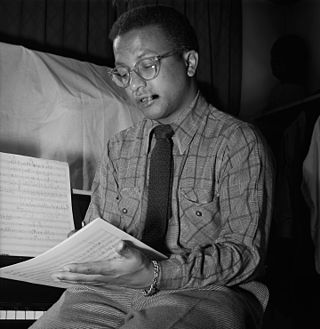
William Thomas Strayhorn was an American jazz composer, pianist, lyricist, and arranger who collaborated with bandleader and composer Duke Ellington for nearly three decades. His compositions include "Take the 'A' Train," "Chelsea Bridge," "A Flower Is a Lovesome Thing," and "Lush Life".

Luther Henderson was an American arranger, composer, orchestrator, and pianist best known for his contributions to Broadway musicals.
"Take the 'A' Train" is a jazz standard by Billy Strayhorn that was the signature tune of the Duke Ellington orchestra.
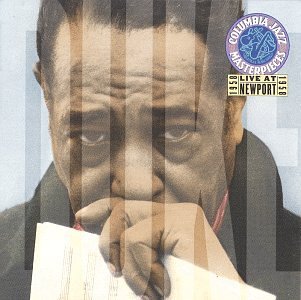
Newport 1958 is a 1958 album by Duke Ellington, recorded at the Newport Jazz Festival of that year and later in the Columbia recording studio. It was released two years after Ellington at Newport, the 1956 album that led to Ellington's career resurgence.
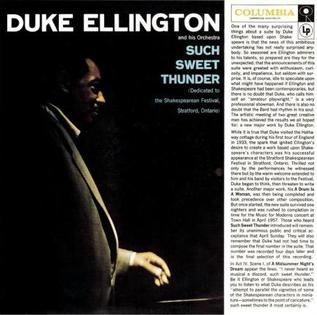
Such Sweet Thunder is a Duke Ellington album, released in 1957. The record is a twelve-part suite based on the work of William Shakespeare.

Although it is billed as a Duke Ellington and Johnny Hodges album, Side by Side is a 1959 album mostly under the leadership of Johnny Hodges, Duke Ellington's alto saxophonist for many years. Ellington only appears on three of this album's tracks. The album places Hodges at the fore, backing him with piano by Ellington or Billy Strayhorn and providing other accompaniment by jazz figures like Ben Webster, Roy Eldridge, Harry "Sweets" Edison and Jo Jones. The album, a follow-up to Back to Back: Duke Ellington and Johnny Hodges Play the Blues, has remained perpetually in print.
Aaron Bridgers was an American jazz pianist and composer.

Sam Woodyard was an American jazz drummer.
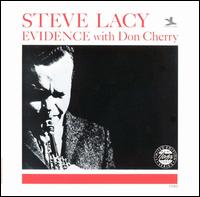
Evidence is the fourth album by Steve Lacy and was released on the New Jazz label in 1962. It features performances of four tunes written by Thelonious Monk and two from Duke Ellington by Lacy, Don Cherry, Carl Brown and Billy Higgins.

"Something to Live For" is a 1939 jazz composition by Billy Strayhorn. It was the first collaboration between Strayhorn and Duke Ellington and became the first of many Strayhorn compositions to be recorded by Ellington's orchestra. The song was based on a poem Strayhorn had written as a teenager. According to an all-day tribute to Strayhorn on KCSM radio on 29 November 2008—Strayhorn's birthday—Strayhorn began working on this tune in 1933 when he was 18.
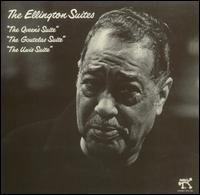
The Ellington Suites is an album by the American pianist, composer, and bandleader Duke Ellington. It collects three suites recorded in 1959, 1971, and 1972, and was released on the Pablo label in 1976. The album won a Grammy Award for Best Jazz Performance by a Big Band in 1976. Ellington and Billy Strayhorn wrote "The Queen's Suite" for Queen Elizabeth II who was presented with a single pressing of the recording, which was not commercially issued during Ellington's lifetime.

Ellington Uptown is an album by American pianist, composer and bandleader Duke Ellington, recorded for the Columbia label in 1951 and 1952. The album was re-released on CD in 2004 with additional tracks recorded in 1947 and originally released as the Liberian Suite EP.

Unknown Session is an album by American pianist, composer and bandleader Duke Ellington. It was recorded in 1960 but not released on the Columbia label until 1979.
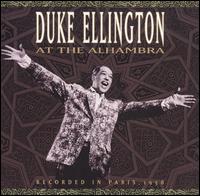
Duke Ellington at the Alhambra is a live album by American pianist, composer and bandleader Duke Ellington recorded in 1958 at the Alhambra Theater, Paris and released on the Pablo label in 2002.

Featuring Paul Gonsalves is an album by American jazz pianist, composer, and bandleader Duke Ellington. Without new material to work with, Ellington recorded the album with his orchestra and saxophonist Paul Gonsalves in 1962 during a four-hour recording session. It was not released until 1985 by Fantasy Records.
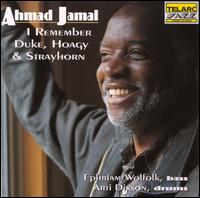
I Remember Duke, Hoagy & Strayhorn is an album by American jazz pianist Ahmad Jamal featuring performances recorded in 1994 and released on the Telarc label.
Michel Sardaby was a French jazz pianist.

The Peaceful Side is an album by pianist and composer Billy Strayhorn recorded in Paris in 1961 and originally released on United Artists Jazz in 1963, then reissued by Solid State in 1968 as The Peaceful Side of Billy Strayhorn.

The Tommy Flanagan Tokyo Recital is an album by jazz pianist Tommy Flanagan. It is a trio album, recorded in 1975, with bassist Keter Betts and drummer Bobby Durham.
References
- ↑ Atkins, E. Taylor (2003) Jazz Planet, p. 65. Univ. Press of Mississippi. At Google Books. Retrieved 29 July 2013.
- ↑ Perera, Mahes (2009) "A legendary pianist" Sunday Observer . Retrieved 29 July 2013.
- ↑ Duke Ellington Music Society Retrieved 29 July 2013.
- ↑ "Juilliard Honors Lilli Lehmann (1929); J.S.Q. Debuts (1946); Strayhorn Scholarship Endowed (1968)" in The Juilliard Journal. Retrieved 30 July 2013.
- ↑ Pujol Baulenas, Jordi (2005) Jazz en Barcelona: 1920-1965, pp.429–30. Almendra Music At Google Books. Retrieved 29 July 2013.